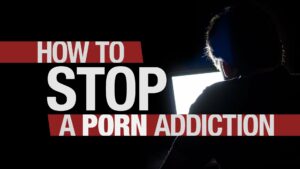The concept of quitting porn is immensely popular, yet few individuals are able to do it successfully.
According to studies, 28,258 people around the world watch pornography every second. While there’s nothing inherently wrong with that, pornography’s high proclivity for addiction is cause for concern. This could result in a large number of young adults having problems such as,
The Pavlovian reaction, sometimes known as “conditioning,” has served as the foundation for a number of psychiatric theories, as well as a frequent pop culture allusion (“Mint, Dwight?”). In essence, Pavlov demonstrated that our brains can build subconscious connections between seemingly unconnected objects, even if they appear to be unrelated. And once those connections are made, they can trigger strong psychological, emotional, and physiological responses.
- Erectile Dysfunction
- Insomnia
- Depression
- Anxiety
- Loneliness
- Difficulty forming and maintaining relationships
According to studies, 88 percent of sequences in pornographic films feature physical hostility. There is verbal hostility in 49% of situations. What children and young adults are exposed to is worrisome.

So what does all of this have to do with porn?
Since Pavlov’s discovery, behavioral psychology has progressed significantly. Today, we know a lot more about the associations our brains can make, and some experts believe that specific types of Pavlovian Conditioning might help explain two of the biggest riddles in addiction and compulsive behavior:
Why do individuals continue to participate in these habits despite the fact that they only bring them emptiness or suffering? why is it so simple for people to return to these activities, even years after they have stopped?

Can porn become addictive?
Before we go any further, let’s talk about the elephant in the room: pornographic addiction. To begin, it’s important to note that not everyone who watches pornography is “addicted.” In truth, specialists have stated that while some people can get hooked to porn, the vast majority of porn users are not.
While the focus of this article is on the science of pornography addiction, keep in mind that many of the negative consequences of pornography usage can impact consumers regardless of whether their practices are classified as diagnosable addictions.
Porn Addiction is Different
Porn addiction differs from other addictions due to a number of characteristics. Smoking, drinking, and drug abuse all have highly visible symptoms. Pornography, on the other hand, might be quietly eating away at people without triggering any warning bells in the meanwhile. The majority of young adults are unaware that they have a problem in the first place. They feel that watching violent, morbid porn is “normal” and not anything to be concerned about. Most people are reluctant to tell others about their problems.
As a result, there is a dearth of social assistance in the form of a support system. Users may feel more alone than ever as a result of this. In most communities, simply discussing sex is frowned upon, let alone discussing sexual things over the internet.
Given how simple it is to obtain pornography these days, it’s no wonder that its misuse is so rampant.
Related: Ron Jeremy: the fall after porn end
Within seconds, anyone with an internet connection may access millions of pornographic websites. As a result, the entrance barrier is almost non-existent. This might be a major hurdle for someone who is actively attempting to kick the habit. Incognito modes in browsers do not save browsing history. This means you have no way of seeing and measuring how much stuff you’ve ingested. Pornography can have a negative impact on a person’s relationship, causing them to become estranged from their spouse. In a relationship, this can lead to emotions of estrangement and bitterness.
Such pressure and sorrow can lead to even more alienation and loneliness, perpetuating the pornographic cycle.

Porn and Drugs have Similar Effects
This is supported by scientific evidence. T Love, C Laier, M Brand, L Hatch, and R Hajela’s careful investigation proves it.
Porn addiction is similar to drug addiction on a fundamental level. Both of them, in fact, elicit a reward response from the brain’s natural reward system. Dopamine and serotonin are two chemicals produced by our brains.
Related: 40 Good Reasons To Stop Watching Porn Now
They are in charge of making us feel good, as well as controlling our eating and sleeping habits. They make certain that we do activities that we enjoy. When we consume delicious food, get enough sleep, and have sex, our brains naturally release dopamine and serotonin. They are created in certain quantities at specific times in order for us to be healthy and carry out our daily activities properly.
This is why, despite its effectiveness, Cognitive Behavioral Therapy (CBT) fails to help people cease using pornography.

Drugs and Porn Mess with the Brain’s Reward System
Sensitization, desensitization, hypofrontality, and a dysfunctional stress system are four significant brain alterations common to addicted brains, according to some specialists. 6 Warning: study reveals that each of these brain abnormalities may be discovered in those who consume pornography. While we go through each of these brain alterations in detail in our Get the Facts series, this post concentrates on sensitization and its role in problematic pornography intake.
Cocaine and methamphetamine, for example, deceive the brain’s reward system. They lead it to create too much dopamine and serotonin, even when it isn’t necessary. This may appear to be a fantastic idea at first. The reason for this is that it permits us to feel cheerful and energetic without having to work for it. Unfortunately, this may quickly escalate into serious issues and addiction.
Pornography operates in a similar manner. It takes over your feeling of pleasure and gives you abnormal surges of dopamine. Accepting that there is a problem, even if it is beyond your control, is the first step toward rehabilitation. We recommend discussing with someone at home, at school, or obtaining professional treatment to help you quit watching porn.
You can benefit from substituting other hobbies such as running, weight training, and swimming for watching porn. Rewiring the brain to want new sources of stimulation and breaking the loop
Related: porn addiction problems


